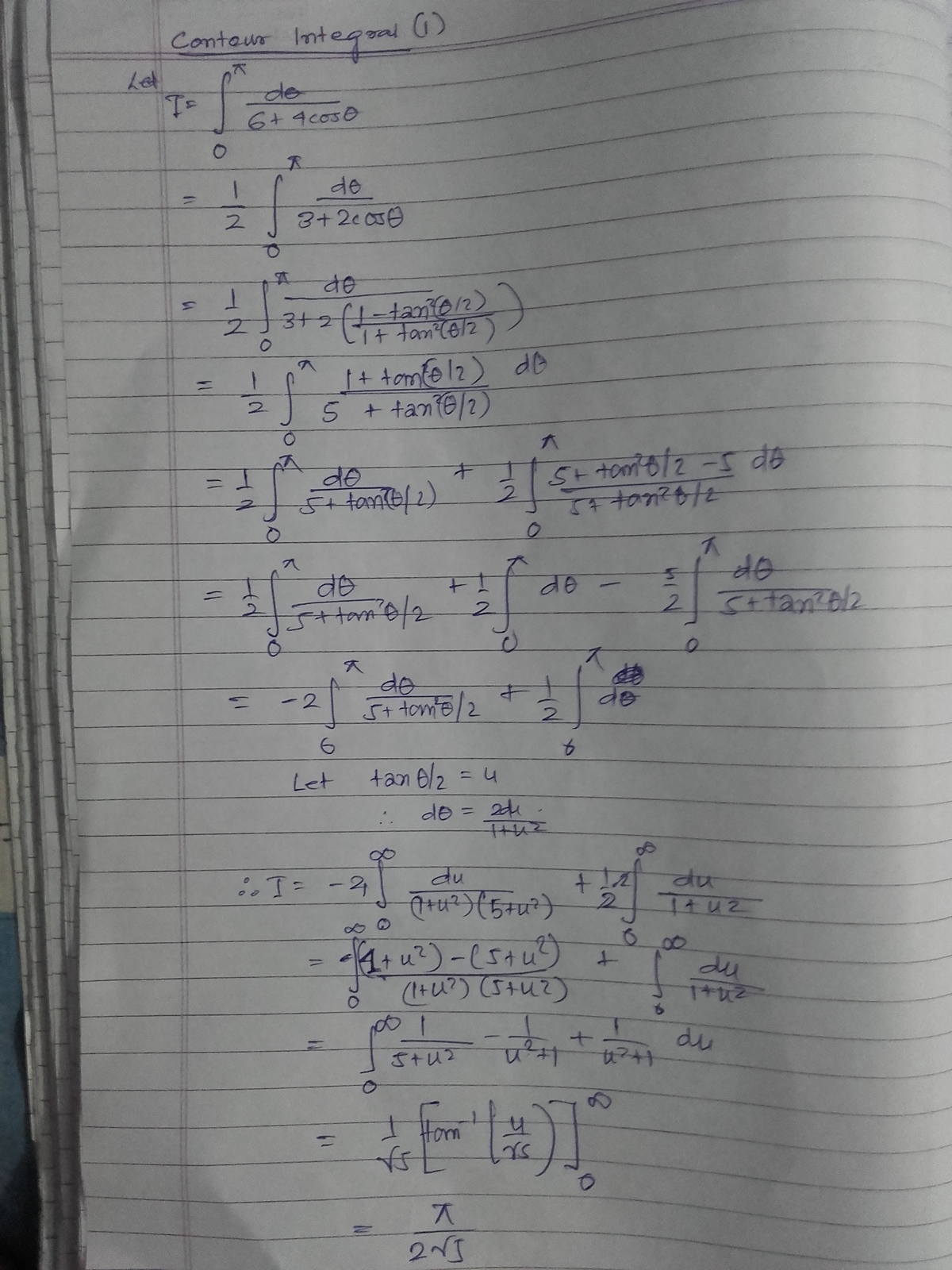Contour integral (2)
∫ 0 2 π 5 − 4 cos θ sin 2 θ d θ = ?
For more problems on contour integrals click here.
The answer is 0.7853.
This section requires Javascript.
You are seeing this because something didn't load right. We suggest you, (a) try
refreshing the page, (b) enabling javascript if it is disabled on your browser and,
finally, (c)
loading the
non-javascript version of this page
. We're sorry about the hassle.
2 solutions
What's the Idea, for the expression at line 7 tu be line 8? @Chew-Seong Cheong
Log in to reply
You mean d t = sec 2 θ d θ ⟹ d θ = sec 2 θ d t = tan 2 θ + 1 d t = t 2 + 1 d t .
This is the solution to Contour Integral 1. I got it wrong on my first attempt, but later found a way of solving.

This problem can be solved similarly. Use the Weierstrass Substitution,i.e-replace the trigonometric denominator with a t a n 2 θ equivalent and then make the substitution u = t a n 2 θ . It is easy from there.
This is not contour integral BTW. But you method is almost correct.
Log in to reply
I thought contour integral was just a fancy name for a tough integral. Is there any other meaning?
Log in to reply
Yes you can search on the internet about that.
What you've done is Weierstrass substitution and u substitution.
I = ∫ 0 2 π 5 − 4 cos θ sin 2 θ d θ = ∫ 0 π 5 − 4 cos θ sin 2 θ d θ + ∫ π 2 π 5 − 4 cos θ sin 2 θ d θ = ∫ 0 π 5 − 4 cos θ sin 2 θ d θ + ∫ 0 π 5 − 4 cos ( θ + π ) sin 2 ( θ + π ) d ( θ + π ) = ∫ 0 π 5 − 4 cos θ sin 2 θ d θ + ∫ 0 π 5 + 4 cos θ sin 2 θ d θ = ∫ 0 π 2 5 − 1 6 cos 2 θ 1 0 sin 2 θ d θ = 1 0 ∫ 0 π 2 5 sec 2 θ − 1 6 tan 2 θ d θ = 2 0 ∫ 0 2 π 2 5 tan 2 θ + 9 tan 2 θ d θ = 2 0 ∫ 0 ∞ ( 2 5 t 2 + 9 ) ( t 2 + 1 ) t 2 d t = 1 6 2 0 ∫ 0 ∞ ( t 2 + 1 1 − 2 5 t 2 + 9 9 ) d t = 4 5 [ tan − 1 t − 5 3 tan − 1 3 5 t ] 0 ∞ = 4 π ≈ 0 . 7 8 5 3 Divide up and down by cos 2 θ Since the integral is symmetrical at θ = 2 π Let t = tan θ ⟹ d t = sec 2 θ d θ By partial fractions